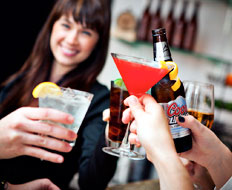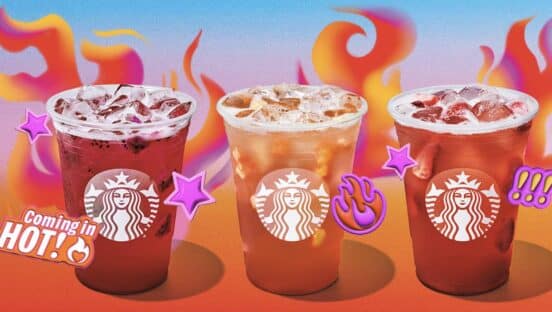Ordering a beer with your burger or a margarita with the taco special at your favorite fast-casual restaurant used to be a rarity, but more concepts are now offering alcoholic selections, from beer to signature cocktails. With the increased awareness and education of adult beverage culture in our society, consumers are expecting, even demanding, a better selection of adult refreshments with their meals, causing more fast-casual concepts to take a look at alcoholic beverage programming.
Fast-casual operators are boosting beverage selections for a number of reasons. There is much profit to be had with a successful beverage program, and the right program is a great way to build brand awareness, differentiation, and loyalty.
Some fast casuals, such as Chipotle, have heard the consumer’s call and are now offering alcoholic selections in addition to traditional nonalcoholic beverages. Restaurant categories that were once recognized as alcohol free are discovering the opportunities and benefits—as well as the pitfalls—that an alcoholic beverage program can create. Others, however, have yet to jump on this trend for various reasons, either due to perceived costs, lack of education, or even the fear of facing the daunting task of putting together a beverage program from scratch. Where does one begin to create such an important element of the overall business model?
Whether the aim is to increase sales, reach a new demographic, or stay relevant in a competitive market, setting goals is the first step in creating any successful beverage program. While these objectives may be easily established, there are a number of factors to take into consideration while determining if the answer lies in alcohol.
1. Know your guests. Before you can determine your beverage features, you must know what your guests are looking for. Do classic cocktails speak to your guests, or is your concept more of a craft-beer or fine-wine place? Whether it’s through focus groups, market surveys, or talking to your guests, it is essential to discover the types and styles of spirits, beer, and wine your guests are looking for.
2. Determine your drink features. Your concept and guests are uniquely yours, so why should your beverage features be status quo? Your concept’s beverage program should represent your brand and act as a communication pillar for who you are as a concept—it must feel right, not forced. It must be true to who you are and reinforce your brand image.
Each and every beverage offering should resonate with guests and be true to your brand. Maybe a craft cocktail program or a signature margarita is right for you. Regardless of your choice, it is important to consider legal restrictions in your market, as well as operational limitations concerning storage, preparation, and standard operating procedures.
3. Train your staff. We all know that knowledge is power. Educating your staff on the specifics of beverage features can make the difference between a program that is successful and one that is a flop. Proper training on even just the liquor, beer, and wine basics is essential, and will give staff members the confidence to go out and proactively sell drinks, thereby increasing guest engagement and satisfaction.
4. Promote it properly. The key to a successful beverage program is proper promotion. All the right pieces can be in place, but if not executed and promoted correctly, any program can fail. In order to create the perfect promotion, operators must think through such factors as the drink feature, price, point of sale, and call to action, among other things.
By working through the four steps of building a beverage program, even the most novice of fast-casual operators can create an impactful and profitable beverage menu. The same principles that have worked for full-service concepts over the past decades can easily be applied to the world of fast-casual dining.
In addition to these steps, it is important for operators to look carefully into the legalities behind beverage programming and promotions. Each market is unique, with its own set of specific legalities, and complying with all legalities that accompany alcohol is essential. Make sure to perform due diligence while researching the licenses, regulations, and fine print behind your concept’s beverage program or promotion.
Building a beverage program doesn’t have to be scary, just informed. With the right tools, information, and guidance, any concept can make the transition from alcohol free to an adult beverage hot-spot.










